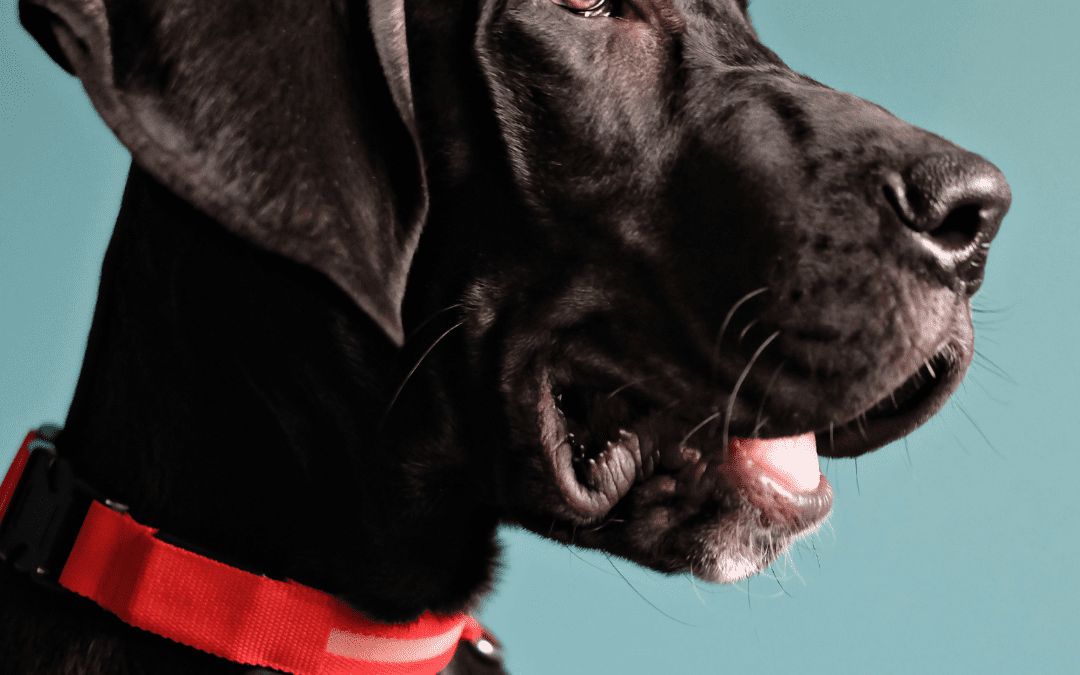Dogs can indeed get the flu, otherwise known as ‘canine influenza’. Canine influenza (dog flu) is different from human flu, so the canine influenza virus cannot spread to humans, and dogs cannot catch human flu. While there have been recent outbreaks of canine influenza virus in the US, it is still rare in the UK. In the UK canine parainfluenza is much more common, which is one of the causes of kennel cough.
What is canine influenza?
Canine influenza, or dog flu, is a contagious infection of the respiratory tract, caused by canine influenza viruses. Much like in humans, there are different strains of the canine influenza virus.
Canine parainfluenza virus is a separate, different virus, which is one of the causes of kennel cough. Both viruses cause similar symptoms.
Both viruses are highly contagious, meaning they spread easily between dogs. This makes them more common in places where dogs are in close contact with each other, such as kennels or parks. Dogs usually spread the virus when they are showing symptoms, but it is possible for a dog to pass on either type of virus without showing any signs at all.
The viruses can both spread via respiratory secretions (tiny droplets that are expelled when dogs cough, breathe, bark or sneeze) or contaminated objects (known as fomites). Examples of fomites include shared water bowls, leads and owners’ hands or clothes.
Symptoms of dog flu
Dog flu presents much like human flu does, so clinical signs (or symptoms) include a cough, fever, sneezing or runny nose, reduced appetite and lethargy (reduced energy levels). While dog flu is mild for most dogs, some dogs can develop serious secondary complications, such as pneumonia. This is more likely in very young, elderly or immune-compromised dogs.
Canine parainfluenza, or kennel cough, can cause similar signs, with its most distinctive sign being a deep, hacking cough. Owners will often confuse this for something being stuck in the throat, and the dog may retch or bring up some froth after coughing. Usually, dogs remain bright and well in themselves, and the cough is the main symptom. However, some dogs will develop more severe signs, such as lethargy, poor appetite and/or fever. Symptoms typically develop 3-14 days after contact with an infected dog and can last anywhere from 1-3 weeks.
When to contact a vet
If your dog has any of the signs listed above, then it’s best to contact your vet for advice. If your dog is unwell in themselves, off their food or lethargic, you should make an appointment as soon as possible. You should treat any changes in their breathing as an emergency.
If your dog has a mild cough and is otherwise well in themselves and behaving normally, they should be able to make a full recovery at home. However, since there are many different causes of coughing (and other respiratory signs) in dogs, it’s still a good idea to have your dog checked by a vet if the cough lasts more than a few days, or is severe. Your vet may ask you to wait outside when you arrive, don’t be offended, it’s to protect their other patients!
How do you test for dog flu (canine influenza)?
Many respiratory infections cause similar signs, so it can be hard to tell which illness your dog is suffering from. In mild cases, your vet will usually treat your pet symptomatically, rather than performing any testing. This means treating the symptoms to make your pet more comfortable, and supporting the body while it fights off the infection itself.
If your dog is showing more serious signs, your vet may advise running some tests. This could include swabs of the nose or back of the throat to check for bacteria or viruses, blood tests, chest x-rays and/or bronchoscopy (where a special camera is placed into the airways to have a look and collect samples).
How to treat dog flu
As with most viruses, there is no specific treatment for dog flu (canine influenza) or kennel cough (parainfluenza). Treatment is based on improving the symptoms and making your dog more comfortable. Treatment for either could include:
- Anti-inflammatory medication to reduce fever, inflammation and pain (such as a sore throat)
- Ensuring good hydration (encouraging your dog to drink plenty of water or adding warm water to their food)
- A good quality diet
- Plenty of rest
In more serious cases hospitalisation may be needed for an intravenous fluid drip or medication to improve appetite. Antibiotics are not effective against dog flu or parainfluenza, since they are caused by viruses, not bacteria. However, rarely, dogs may develop a secondary bacterial infection, in which case antibiotics would be needed.
Preventing dog flu
Vaccines against canine influenza virus are available in the United States and Canada. In the UK, we can, and routinely do, vaccinate against parainfluenza virus. As with any vaccine, neither of these offers 100% protection. However, vaccinating significantly reduces the risk of your dog being infected. If a vaccinated dog does catch the virus, the symptoms would usually be much milder than in an unvaccinated dog.
Remember, dogs don’t need to be in kennels to catch kennel cough! If your dog mixes with other dogs or visits areas where other dogs are walked, then they could be exposed to kennel cough. Have a chat with your vet if you aren’t sure whether your dog needs a kennel cough vaccine.
One of the most important ways of preventing the spread of dog flu and kennel cough is to keep infected dogs away from other dogs. If your dog has parainfluenza (kennel cough), you should keep them away from other dogs until 2-3 weeks after the symptoms have stopped.
Thankfully dog flu, or canine influenza, is rare in the UK. On the other hand, canine parainfluenza is common. This is one of the causes of kennel cough and is highly contagious. If your dog has any flu-like symptoms, it’s always safest to book them a check-up with your vet. If your dog regularly mixes with other dogs, have a chat with your vet about vaccinating them against kennel cough.
You can find out more, about the AeroDawg® Chamber here.

